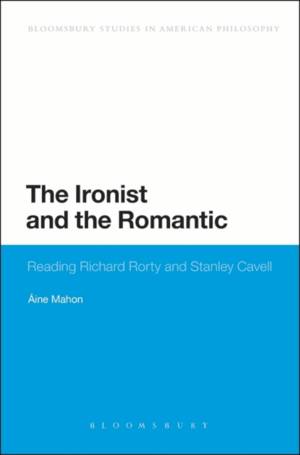
Bedankt voor het vertrouwen het afgelopen jaar! Om jou te bedanken bieden we GRATIS verzending (in België) aan op alles gedurende de hele maand januari.
- Afhalen na 1 uur in een winkel met voorraad
- In januari gratis thuislevering in België
- Ruim aanbod met 7 miljoen producten
Bedankt voor het vertrouwen het afgelopen jaar! Om jou te bedanken bieden we GRATIS verzending (in België) aan op alles gedurende de hele maand januari.
- Afhalen na 1 uur in een winkel met voorraad
- In januari gratis thuislevering in België
- Ruim aanbod met 7 miljoen producten
Zoeken
€ 296,95
+ 593 punten
Uitvoering
Omschrijving
At the time of his death in 2007, Richard Rorty was widely acclaimed as one of the world's most influential contemporary thinkers. Stanley Cavell, who has been a leading intellectual figure from the 1960s to the present, has been just as philosophically influential as Rorty though perhaps not as politically divisive. Both philosophers have developed from analytic to post-analytical thought, both move between philosophy, literature and cultural politics, and both re-establish American philosophical traditions in a new and nuanced key.
The Ironist and the Romantic: Reading Richard Rorty and Stanley Cavell finds the sound of Rorty's cheerful pragmatism strikingly at odds with the anxious romanticism of Cavell. Beginning from this tonal discord, and moving through comprehensive comparative analysis on the topics of scepticism, American philosophy, literature, writing style and politics, this book presents the work of its central figures in a novel and mutually illuminating perspective. Áine Mahon's unique and original comparative reading will be of interest not only to those working on Rorty and Cavell but to anyone concerned with the current state of American philosophy.Specificaties
Betrokkenen
- Auteur(s):
- Uitgeverij:
Inhoud
- Aantal bladzijden:
- 208
- Taal:
- Engels
- Reeks:
Eigenschappen
- Productcode (EAN):
- 9781441146014
- Verschijningsdatum:
- 17/07/2014
- Uitvoering:
- Hardcover
- Formaat:
- Genaaid
- Afmetingen:
- 156 mm x 234 mm
- Gewicht:
- 462 g

Alleen bij Standaard Boekhandel
+ 593 punten op je klantenkaart van Standaard Boekhandel
Beoordelingen
We publiceren alleen reviews die voldoen aan de voorwaarden voor reviews. Bekijk onze voorwaarden voor reviews.









